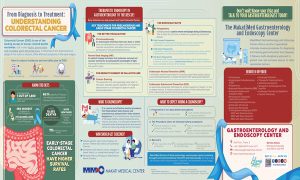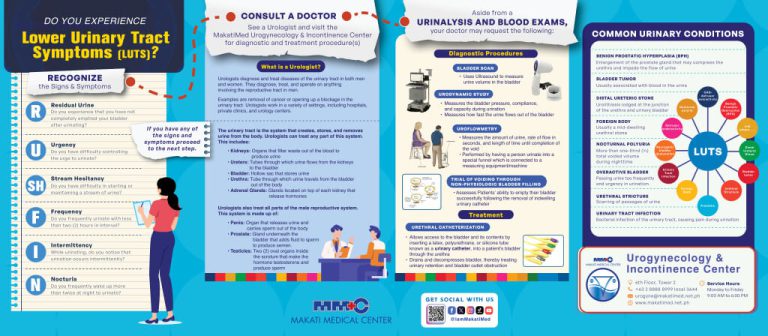Birth control has moved past pregnancy prevention and taken space in protective sex. But while many studies have proven its convenience and efficacy, there may still be questions about how it can affect one’s health.
In this article, find out how birth control impacts women at different life stages, and when to take pills as the choice of contraception.
What is Birth Control?
Birth control, or contraception, is any medication, medical device, or surgery that can reduce the risk of pregnancies. It has many forms, such as barrier methods, hormonal options, long-acting reversible contraception (LARC), and non-reversible sterilization.
Although largely meant to prevent pregnancies, some birth control options can also provide protection against acquiring sexually transmitted diseases (STDs). Just make sure to consult with a physician first to determine the best choice and when to best start with it to ensure efficacy and safety.
How Birth Control Affects the Body
A. Birth Control in Teens
Taking birth control pills is often the chosen option among sexually active teens. Most birth control pills combine estrogen and progesterone hormones that can inhibit ovulation, earning the name “combination pills.”
Although they can effectively prevent pregnancy, birth control pills have potential negative side effects in women at this age range. One of these is irregular menstrual bleeding, especially if teens take mini-pills. They may also experience mood changes due to hormone intake.
Other side effects include:
- Nausea
- Headaches
- Dizziness
- Breast tenderness
- Possible blood clots
This is why it is imperative to see a doctor for proper guidance on taking birth control pills.
B. Birth Control in the 20s and 30s
While birth control pills are popular among young or middle-aged women, not everyone should use them. Many women in this age group have hectic lifestyles, making it hard to remember to take their pills daily. If they miss too many pills, their birth control method may not work effectively, and they could become pregnant. As such, exploring other birth control options may be a better route.
For example, an intrauterine device (IUD) can be an excellent option since it eliminates the worries of missing a pill. Moreover, this device can be removed should the woman decide to get pregnant later.
Birth control options are safe for most women in their 20s and 30s. But it is always better to consult a doctor for utmost safety.
Doctors can help women weigh the advantages and disadvantages of various birth control methods to eventually choose which is best for them, especially if they have a history of illness or other risk factors. For instance, estrogen-containing pills may be unsafe for women aged 35 and above who smoke because they may increase the chances of getting a stroke during treatment.
C. Birth Control in the 40s
The 40s is usually when women are nearing menopause, which can be considered as the transition stage where their fertility declines. However, one can still get pregnant at this stage if they have not reached menopause yet, so knowing and taking the proper birth control method are still important.
For most, low-dose birth control pills are a good choice to prevent pregnancies in the 40s. Plus, these can help address perimenopause symptoms such as hot flashes, night sweats, and irregular periods at the same time. But, this option may not be the best for smokers and those with risk factors. In such cases, women can choose more permanent options like tubal ligation. This surgery obstructs the path between the ovary and uterus by “tying” fallopian tubes, effectively stopping pregnancies.
When to Take Birth Control Pills
1. Know the pill
There are two (2) types of birth control pills: combination and progestin-only.
Combination pills contain a mix of estrogen and progesterone hormones, which stop pregnancies by preventing ovaries from releasing eggs every month. Progestin-only pills have one hormone and work by thickening the mucus in the uterus to stop the sperm from reaching the egg.
2. Determine when to start taking the pill
Once one decides to use birth control pills, one can take them any time, whether during their period or not. However, the efficacy may take time, though it still largely depends on the type of pill. For example, some pills may take seven (7) days before they can effectively prevent pregnancies.
Following a schedule notably ensures the pills’ effectiveness. For combination pills, take them five (5) days after starting the menstrual period and become protected from pregnancies immediately. But if taking them outside the menstrual period, wait seven (7) days before it becomes effective.
On the other hand, progestin-only pills require two (2) days before becoming effective, and taking them at the same time each day.
3. Seek medical advice
Again, birth control pills have side effects. They may be effective but they still cause adverse effects due to pre-existing medical conditions, genetics, smoking habits, and age.
As such, consult a doctor on when to take birth control pills and the right type for a specific case. Doing so can effectively and safely protect from pregnancies.
4. Take note of your menstrual cycle
Know when your menstrual period starts and ends. This way, the doctor can determine the best time to take birth control pills. Remember, some pills require knowing when the menstrual period starts to protect from pregnancies effectively and immediately.
5. Understand the options
Birth control pills are not the only option. Some alternatives can safely prevent pregnancies if pills are not suitable. Moreover, ensure to have secondary birth control—like condoms—in case you forget to take the pill.
Prevent Unplanned Pregnancies with Birth Control
Parenthood is not for everyone. Some may not want to have children, while others feel that one may not need a pregnancy at a specific stage. Understanding how birth control works and the options can help prevent unintended pregnancies.
Avoid unexpected pregnancies safely and effectively by seeking a professional treatment plan with Makati Medical Center. Our obstetrics and gynecology professionals are here to help practice safe sex with the best birth control option for one’s health.











